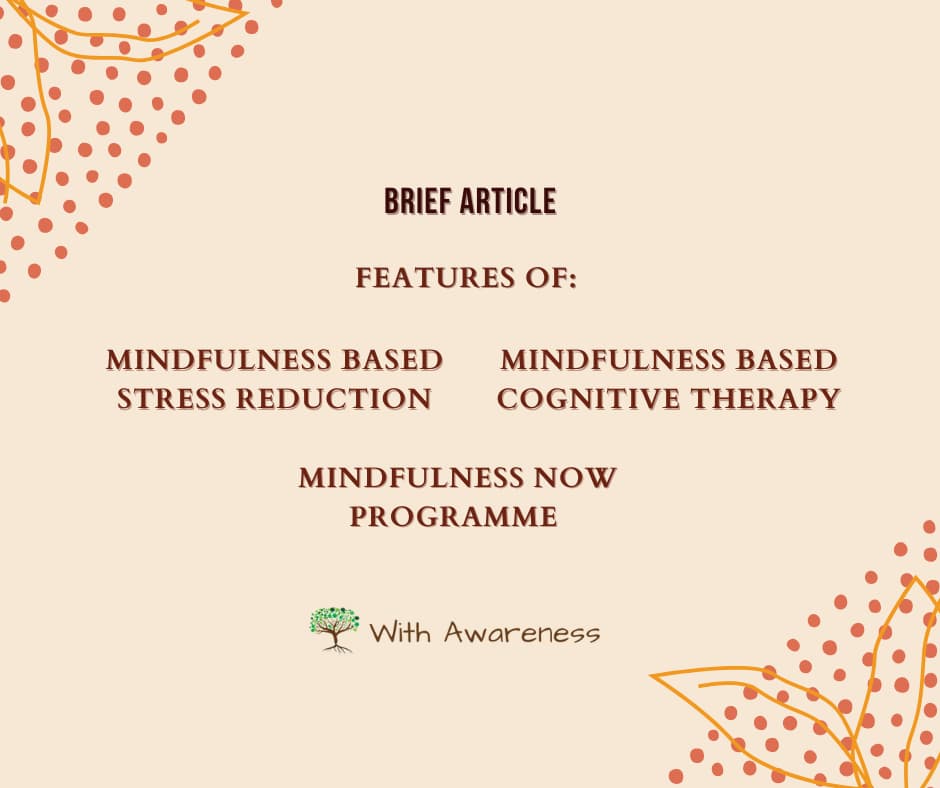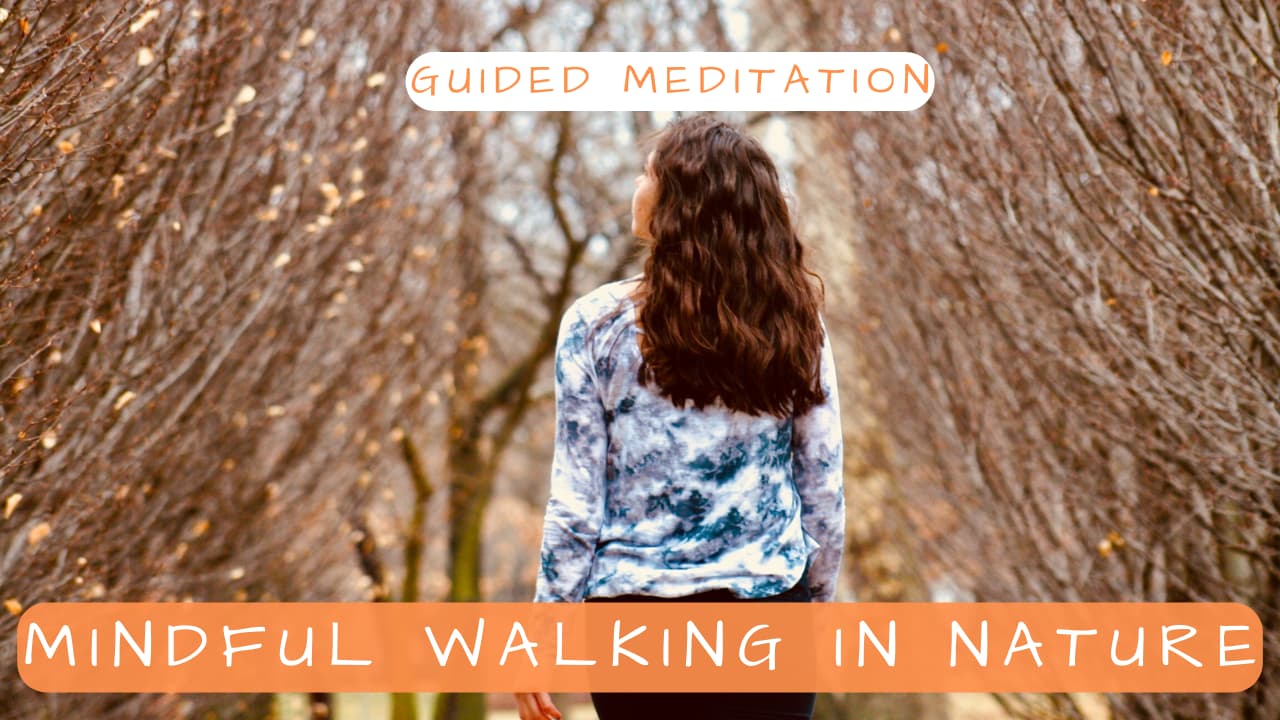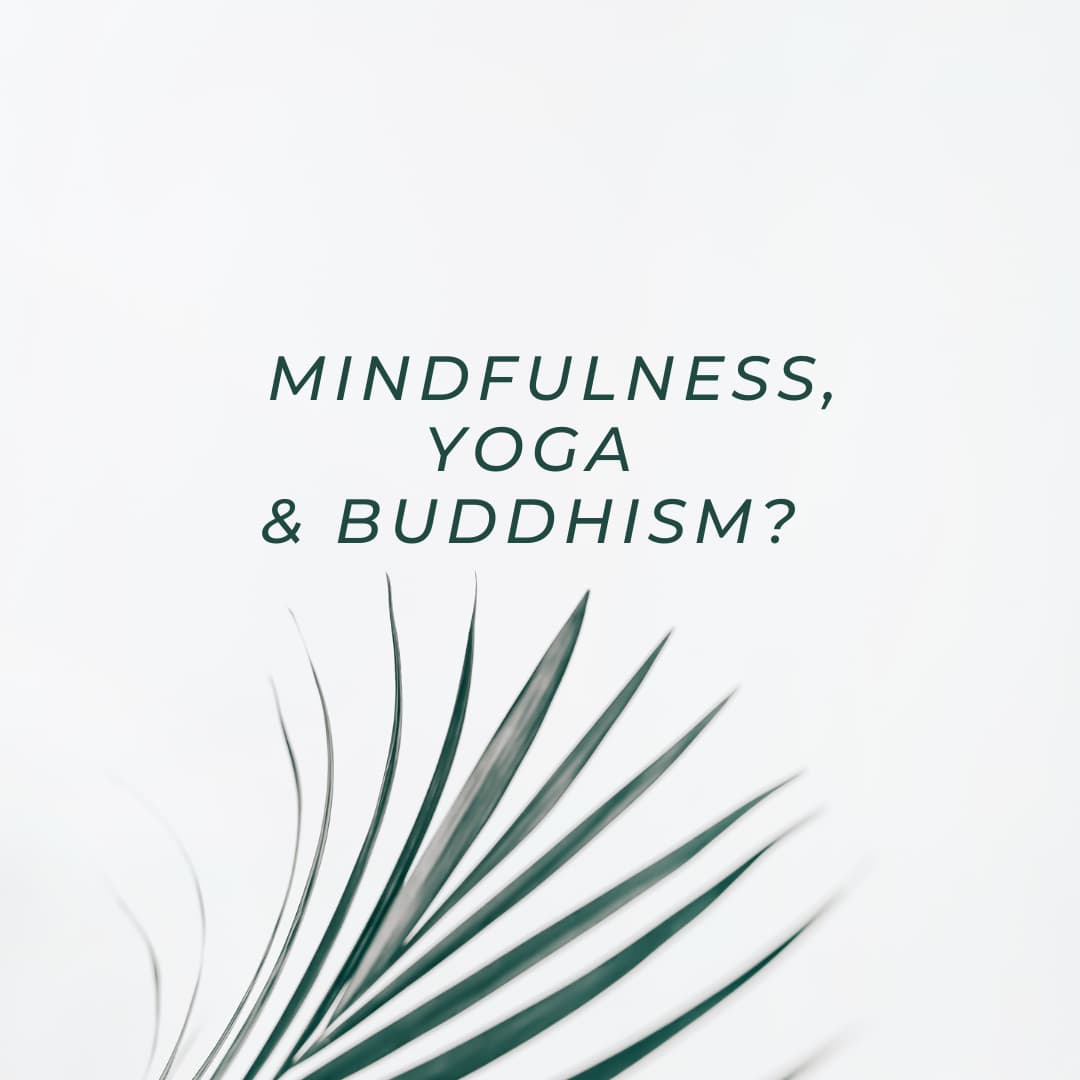Features of Mindfulness Based Stress Reduction, Mindfulness Based Cognitive Therapy and Mindfulness Now Programme

The idea behind creating this very brief article is to highlight similarities and differences between three mindfulness-based intervention: the Mindfulness Based Stress Reduction, the Mindfulness Based Cognitive Therapy and the Mindfulness Now programme.
 The Mindfulness Based Stress Reduction (MBSR) programme was originally developed for group of patients with a range of physical and psychological conditions like stress, pain and anxiety, it was later widened to include chronic
The Mindfulness Based Stress Reduction (MBSR) programme was originally developed for group of patients with a range of physical and psychological conditions like stress, pain and anxiety, it was later widened to include chronic
conditions such as cancer, addictions, eating disorders and rheumatism. The MBSR was developed in 1990 by Dr Jon Kabat-Zinn and colleagues at the University of Massachusetts and it has been taught to group of people, giving emphasis on body and movement. However, the Mindfulness Based Cognitive Therapy (MBCT) programme was developed by Dr Mark Williams and colleagues in 2002 at the University of Oxford and although it was built upon the MBSR, its aim is of helping people with history of major depressive disorder and vulnerable to relapse back into depression. This programme it has also been taught to group of people giving emphasis on cognition. The Mindfulness Now (MN) programme was developed by Nick Cooke in 2014, after his own experience of using mindfulness to help himself managing pain, recovering and rehabilitating following two serious illnesses.
The MN programme provides a fusion of key elements of the MBSR and MBCT, it is very flexible and it has been structured to meet the needs of the individual and/or group of people. In fact, it has been taught to both groups of people and to individuals. The MN programme addresses pain, stress, negative thoughts and general well-being and gives equal emphasis on body and cognition and can simply be integrated with other therapeutic approaches.
There are a few similarities between all three, for example the duration which consists of eight weeks, although the MN program can be condensed and could include informal opportunities. All three programmes include home works and also include recommendation to listen to audio recording of all formal meditations and in the MN program those are very much customised to the clients’ needs. These three programmes are based on various formal practices: visualisations for the MBSR, poems and stories for the MBCT and visualisation, poems and stories for the MN.
Lastly, four more distinctive features of the MN programme are: a detailed individual assessment, weekly group meditation sessions; an open-ended teaching and support program and a “gift” at the end of the program, which consists of a day-long mindfulness retreat.



